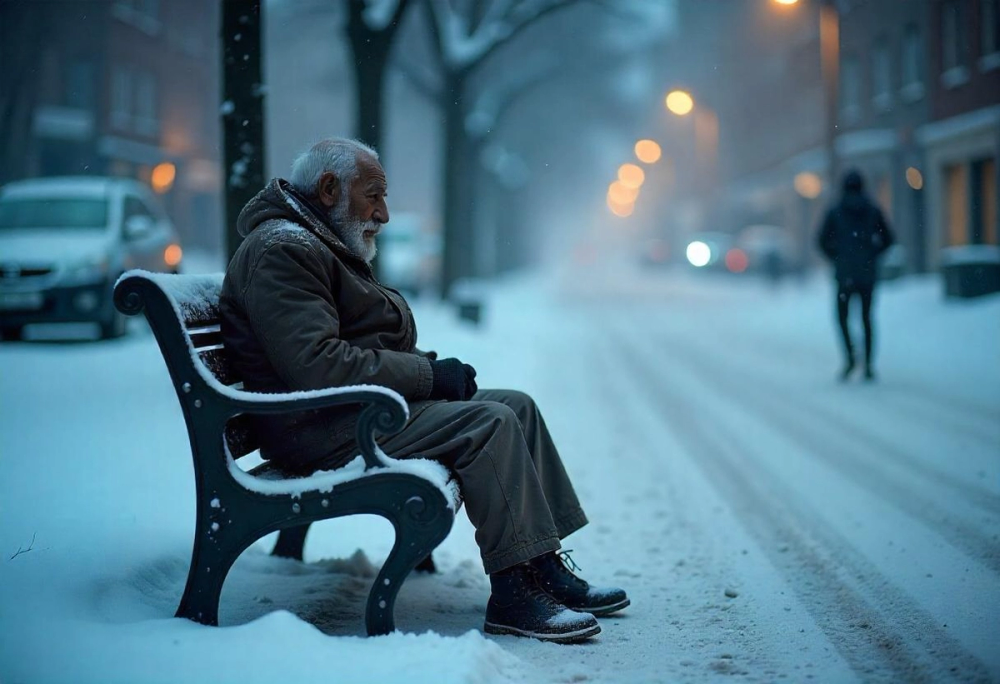Dementia in the Streets: The Forgotten Faces of Cognitive Decline
Marco Aurélio Gomes Veado
3 min read
•
February 28, 2025
Dementia, a progressive cognitive decline, affects millions worldwide. While much attention is given to those diagnosed within the comfort of their homes, a significant and often overlooked population grapples with this condition on the streets. Individuals experiencing homelessness face unique challenges when confronting dementia, leading to a cycle of neglect and exacerbation.

The Intersection of Homelessness and Dementia
Recent studies have illuminated the heightened prevalence of dementia among the homeless population. Research conducted in Ontario, Canada, revealed that individuals experiencing homelessness are 1.9 times more likely to develop dementia than the general population. Alarmingly, the onset of dementia in this group occurs at younger ages, particularly between 55 to 64 years, where rates are four to five times higher than in housed individuals of the same age bracket.
Several factors contribute to this increased risk, such as:
- Chronic health conditions prevalent among the homeless, such as head trauma, neurological disorders.
- HIV, and substance use, are known to elevate the likelihood of cognitive decline.
- Daily struggles associated with homelessness—lack of nutrition, inadequate healthcare.
- Constant exposure to environmental stressors accelerates aging and cognitive deterioration.
Challenges in Diagnosis and Care
Identifying and managing dementia in the homeless population presents unique challenges. The transient nature of homelessness makes consistent medical care and record-keeping difficult. Cognitive symptoms may be mistakenly attributed to mental health disorders or substance abuse, leading to underdiagnosis or misdiagnosis. Moreover, without a stable support system, individuals lack advocates to recognize early signs of dementia and facilitate medical intervention.
“The complexity of diagnosing dementia in this demographic is further compounded by overlapping health issues.”
The Role of Supportive Housing
Addressing dementia among the homeless necessitates innovative solutions that integrate healthcare with housing. Supportive housing models like “Menorah Park”, offer stable living conditions alongside access to medical and social services. These environments provide residents with the structure and support needed to manage their health effectively.
Policy Implications and Future Directions
The rising intersection of homelessness and dementia calls for comprehensive policy responses. Proactive measures should include early screening for cognitive impairments among at-risk populations, even before the traditional age threshold of 65. Training healthcare providers to recognize and address the unique needs of homeless individuals with dementia is crucial.
Furthermore, investment in supportive housing not only offers shelter but also serves as a preventive measure against the progression of dementia. Collaborative efforts between governments, non-profit organizations, and healthcare systems are essential to create sustainable solutions.
"Access to permanent, supportive housing structures for people experiencing homelessness is critical in preventing and slowing the progression of dementia in this population."
Conclusion
Dementia among the homeless is a pressing issue that demands immediate attention. By acknowledging and addressing the unique challenges faced by this marginalized group, society can take meaningful steps toward inclusivity and comprehensive care. Implementing supportive housing models, enhancing early diagnosis, and tailoring healthcare services are pivotal in ensuring that the forgotten faces of cognitive decline receive the dignity and care they deserve!
Do your job and lead these people to a shelter. They need care, respect and attention. Let’s fight this cause together. MCI and Beyond has a mission. Join us by signing up for our biweekly newsletter. Stay tuned. Thanks for reading.
#MCIandBeyond #MildCognitiveImpairment #DementiaCare #CognitiveEmpowerment #DementiaAwareness #CaregiversSupport #BrainHealth #AlzheimersAwareness #MCIResources #CognitiveHealth #DementiaSupport #HealthEmpowerment #MemoryLossSupport #HomelessWithDementia
Sign up for our newsletter!
Get the latest information and inspirational stories for caregivers, delivered directly to your inbox.

